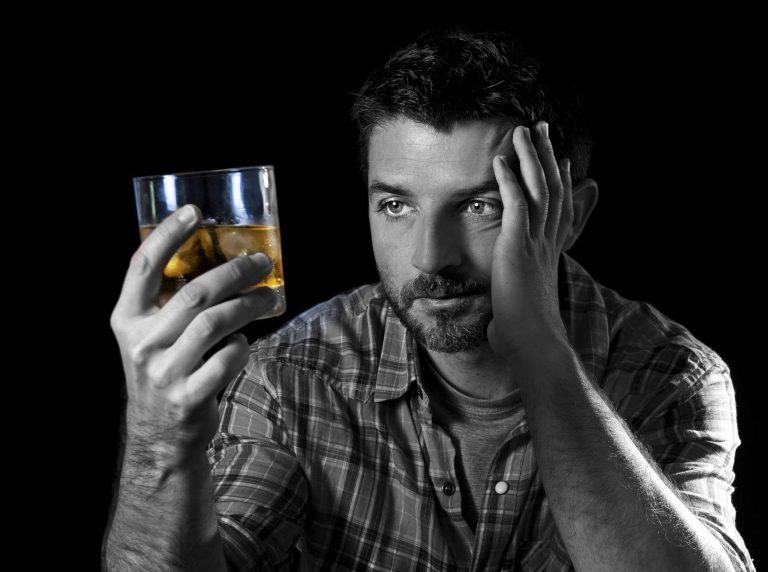Stoptober 2024: Here’s what giving up alcohol actually does to your body
Shame and guilt about past alcohol use increase a person’s risk of relapse. If they relapse, these negative emotions often intensify, creating a cycle of abstinence and relapse that is difficult to break without professional help. It can be important to distinguish between a full-blown relapse and a slip-up. With a relapse, you fully go back into old patterns of out-of-control drinking, which can require going back into treatment and other steps to get back to sobriety. Some clinicians will divide this stage of relapse into a lapse and then the actual relapse.

Commentary: ‘It’s 5 o’clock somewhere’ is no joke if you’ve seen alcohol’s toll
- We publish material that is researched, cited, edited and reviewed by licensed medical professionals.
- Self-care might be as simple as adjusting your diet or getting more sleep.
- Some people experience prolonged withdrawal symptoms, like insomnia and mood changes, that can last for weeks or months.
- I finally reached my breaking point in March when I met two friends out for dinner.
“For as long as I can remember, I’ve been an anxious person,” he says. “Anxious and worried.” This wasn’t an issue on-air, where he never felt nervous, but it http://www.ngavan.ru/gan/a00/b04/c0000/d0001/ind.shtml was off-air, where overthinking could get the better of him. Alcohol is one of the great anti-anxiety drugs, a glorious disinhibitor, but it creates new anxieties. There were nights when Jake Kemp lay awake in bed, the same sentences on loop in his brain, like a station whose dial refused to budge. The holiday calendar can fill up fast with work parties, family gatherings, school events, and friend meetups, not to mention all the activities that make the season special, like ice skating, light displays, and holiday concerts. The more mindful you are, the more empowered you’ll feel to make choices that truly support your well-being.
Alcohol and Cialis: Risks, Side Effects & Treatment
People in recovery from alcohol addiction are at the highest risk of relapse during the early alcoholic recovery stages, in the immediate moments after a traumatic event or during times of transition. Most people in recovery must actively take steps to avoid relapse for the rest of their lives. At the core of this debate is the acknowledgment that recovery from alcoholism requires a highly individualized approach. Abstinence is essential for recovering alcoholics to reach their goals and maintain their sobriety. By eliminating the temptation of alcohol completely, individuals can focus on their recovery journey without the constant struggle of resisting the urge to drink.

The interplay of these factors makes alcoholism a complex disease that requires a multifaceted approach to treatment and understanding. Psychologically, individuals with mental health disorders such as depression, anxiety, and post-traumatic stress disorder (PTSD) are at higher risk of developing alcoholism. Alcohol may initially serve as a self-medication mechanism, providing temporary relief from symptoms, but ultimately leading to dependency. The journey into alcoholism is seldom a linear path but rather a confluence of various factors that predispose an individual to addiction. Biologically, genetic predispositions play a significant role, with research suggesting that genetics account for approximately 50% of the risk for AUD. Brain chemistry also plays a crucial role; alcohol affects the brain’s reward system, leading to increased dopamine release and reinforcing the behavior of drinking.

Arguments for and Against Allowing Alcoholics to Drink in Moderation
- Mentally, you’ll likely experience enhanced clarity and concentration as the fog of alcohol’s impact on the brain lifts.
- He did this privately; he was too embarrassed to let anyone else know, although he was struck by how the room filled with high achievers.
- Alcohol’s dehydrating effect starts to reverse, leading to improved hydration levels.
- Being aware of these factors is crucial when considering drinking alcohol again after a period of sobriety.
- Alcohol interacts with the reward and motivation center of the brain and with areas that regulate motor function, emotions, stress reactions, learning, and memory.
An alcohol relapse means you go back to drinking regularly after having a period of sobriety without the use of alcohol. Typically, individuals will start by joining a Moderation Management (MM) program. This program requires at least 30 days of complete sobriety while individuals learn how to identify triggers, change drinking patterns, and create healthy behaviors to replace drinking. While most treatment programs recommend complete abstinence (no alcohol whatsoever), harm reduction can be beneficial to some individuals, especially those who don’t have an alcohol addiction or alcohol use disorder (AUD).
Should I Start Drinking Again?
While this is true, much more goes into a relapse than just drinking or using substances again. In recovery, you will understand what led you to consume alcohol in the first place and work to rectify maladaptive behaviors. If you or someone you know has alcohol use disorder (AUD) and has relapsed, this is a common occurrence. You can take steps to get back on track after an alcoholic relapse has occurred, and you can watch for warning signs that you might need more intensive intervention. If you need help or feel like you could be on the cusp of a relapse, remember that addiction is a chronic disease.
- No relapse is too big to recover from, and in fact, you can take immediate action to regain your sobriety.
- When my friend’s fiancée took his own life, I was surrounded by wine bottles strewn across the kitchen counter, but each time I walked out the door stone-cold sober, I could breathe a sigh of relief.
- Practicing self-care, learning to say no and avoiding unnecessary stress — a common trigger for relapse — are also vitally important.
- Here, chronic alcohol administration caused de-dimerization of the large Golgi matrix protein giantin in rat hepatocytes, leading to Golgi apparatus disassembly.
- Many others reduce their drinking significantly and report fewer alcohol-related problems after entering rehab.
- Whilst withdrawal symptoms such as cravings and lethargy can last a couple of weeks, they begin to fade considerably by this point.
- Indeed, new research has found that Gen Z’s alcohol consumption dropped by 25% over the last four years and it looks set to continue to fall in 2025 too.
Create a Relapse Prevention Plan
Within the first few days of giving up alcohol, your body should begin to respond positively. Alcohol’s dehydrating effect starts to reverse, leading to improved hydration levels. These enzymes generate FAEE by condensing alcohol with a http://bestleasing.ru/prom-leasing/211-eng/67/ fatty acid (e.g., oleic acid).

We all ordered drinks, then spent most of the meal discussing our not-so-great relationship with alcohol. I slept terribly that night and decided the next morning to try to stop for good. I don’t think anyone would have called me an alcoholic, but I knew I had a problem when I realized how often I was writing in my journal about how crappy wine made me feel. I met my husband at a bar over a Northern Standard cocktail and then wrote about it for Food & Wine magazine.
Alcoholic cardiomyopathy is a specific heart muscle disease caused by chronic alcohol intake and has been studied in http://котокафемира.рф/204452717-kotik-ploho-est-tolko-50.php animal models. Chronic alcohol intake tends to increase left ventricular mass and dilatation that leads to heart failure in a rat model of alcohol administration. Studies examining recovery of cardiac function in animal models have not been described.







